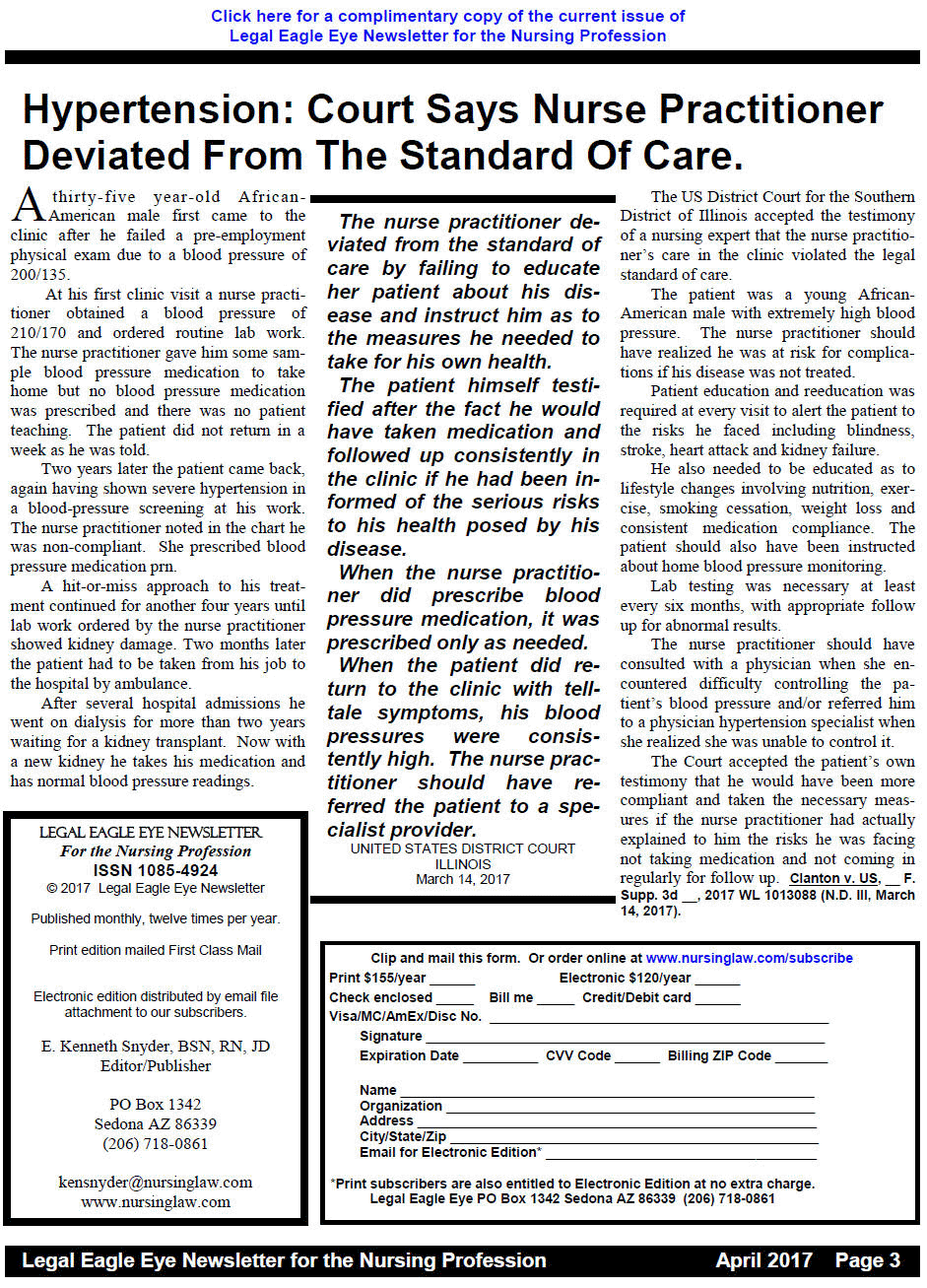
The nurse practitioner deviated from the standard of care by failing to educate her patient about his disease and instruct him as to the measures he needed to take for his own health. The patient himself testified after the fact he would have taken medication and followed up consistently in the clinic if he had been informed of the serious risks to his health posed by his disease.
When the nurse practitioner did prescribe blood pressure medication, it was prescribed only as needed. When the patient did return to the clinic with tell-tale symptoms, his blood pressures were consistently high. The nurse practitioner should have referred the patient to a specialist provider.
UNITED STATES DISTRICT COURT ILLINOIS March 14, 2017A thirty-five year-old African-American male first came to the clinic after he failed a pre-employment physical exam due to a blood pressure of 200/135. At his first clinic visit a nurse practitioner obtained a blood pressure of 210/170 and ordered routine lab work. The nurse practitioner gave him some sample blood pressure medication to take home but no blood pressure medication was prescribed and there was no patient teaching. The patient did not return in a week as he was told.
Two years later the patient came back, again having shown severe hypertension in a blood-pressure screening at his work. The nurse practitioner noted in the chart he was non-compliant. She prescribed blood pressure medication prn. A hit-or-miss approach to his treatment continued for another four years until lab work ordered by the nurse practitioner showed kidney damage. Two months later the patient had to be taken from his job to the hospital by ambulance. After several hospital admissions he went on dialysis for more than two years waiting for a kidney transplant. Now with a new kidney he takes his medication and has normal blood pressure readings.
The US District Court for the Southern District of Illinois accepted the testimony of a nursing expert that the nurse practitionerís care in the clinic violated the legal standard of care. The patient was a young African-American male with extremely high blood pressure. The nurse practitioner should have realized he was at risk for complications if his disease was not treated. Patient education and reeducation was required at every visit to alert the patient to the risks he faced including blindness, stroke, heart attack and kidney failure. He also needed to be educated as to lifestyle changes involving nutrition, exercise, smoking cessation, weight loss and consistent medication compliance. The patient should also have been instructed about home blood pressure monitoring. Lab testing was necessary at least every six months, with appropriate follow up for abnormal results.
The nurse practitioner should have consulted with a physician when she encountered difficulty controlling the patientís blood pressure and/or referred him to a physician hypertension specialist when she realized she was unable to control it. The Court accepted the patientís own testimony that he would have been more compliant and taken the necessary measures if the nurse practitioner had actually explained to him the risks he was facing not taking medication and not coming in regularly for follow up. Clanton v. US, __ F. Supp. 3d __, 2017 WL 1013088 (N.D. Ill, March 14, 2017).